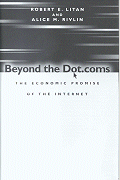Despite accounting for more than a sixth of the U.S. economy, the health-care sector has provided notoriously poor value for money. It’s populated by providers, insurers, and other institutions which, like the saurians of an ancient epoch, are bloated, wasteful, and seemingly impervious to disruptive innovation. But that’s now changing. Like mammals scampering under the dinosaurs’ feet, disruptive entrepreneurs and investors are gaining a foothold in the market.
In his latest paper, Jonathan Rauch profiles these change agents and shows how they are not merely occupying a new niche in health care’s business ecology but actively cultivating and expanding it. By creating business models that make money by keeping people healthier and reducing waste, they are commercializing the creation of value.
By interviewing investors, entrepreneurs, and health care executives, Rauch finds that:
- The federal government’s movement away from fee-for-service payment, particularly in the Medicare Advantage program and the Affordable Care Act, has sent providers and insurers scrambling to explore value-based revenue models. They are focused as never before—as one executive put it—on not becoming Kodak.
- The exponential increase in the quantity and quality of health-care data, the parallel growth in the power and availability of analytical tools, and the rising demand for value-based business models are combining to open the market to efficiency-seeking startups and products that would not have been viable even a few years ago.
- Sensing upheaval in the market, an influx of outside talent into the health care sector is populating profitable niches for efficiency-improving products and services, moving traditional players to raise their game.
- Together, those developments are making the health care sector more open to business-model innovation than at any time in memory. In a sector as large and complex as health care, change won’t come overnight. Still, investors, entrepreneurs, and executives herald the upending of long-lived business practices as “transformational,” “incredibly exciting,” and an “explosion of positive innovation.”
The Brookings Institution is committed to quality, independence, and impact.
We are supported by a diverse array of funders. In line with our values and policies, each Brookings publication represents the sole views of its author(s).



